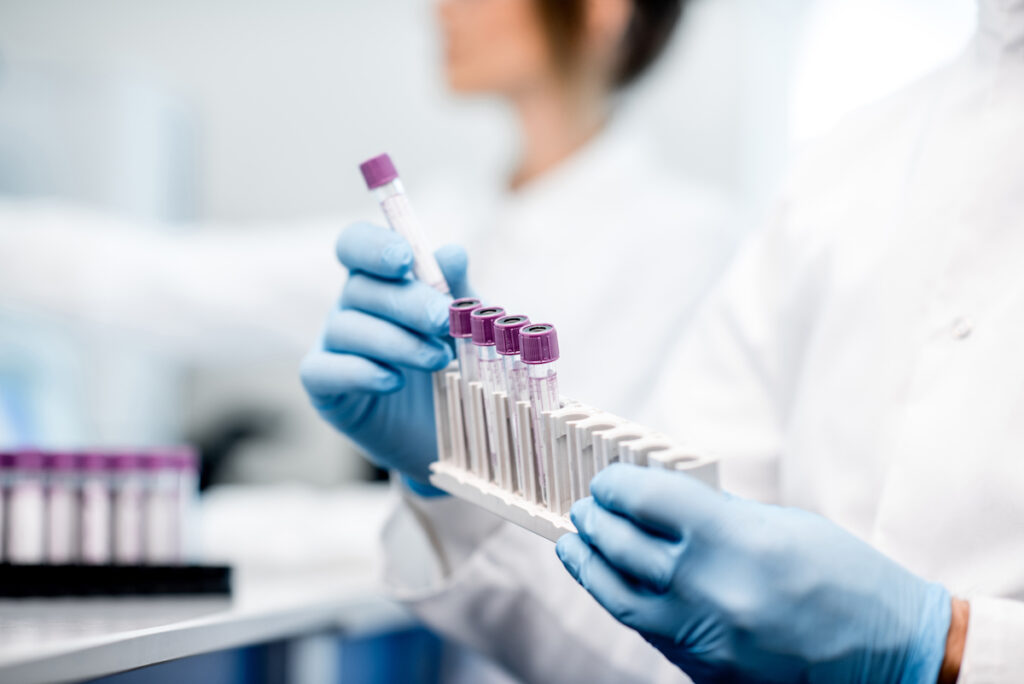Software which speeds up the process of creating new diagnostic tests could help combat future pandemics, according to its developers in Scotland.
A team of bioengineers and chemists at Glasgow University and Shanghai Jiao Tong University in China have developed a system to accelerate the design and development of test kits for a range of diseases.
The software, which is freely available to other researchers around the world, can also be used to identify the early stages of non-infectious diseases like cancer, which could help patients receive more timely treatment.
In a new paper published today in the journal Nature Communications, the team of researchers describe how they developed and demonstrated the effectiveness of their system.
They began by developing a faster DNA-based process than is used for conventional PCR tests, which require access to sophisticated labs operated by trained staff.
However, in many cases, those rapid tests are designed and developed for a specific purpose, which can introduce unnecessary complexity and make it difficult for one test to be easily adapted for use in a different diagnosis.
The researchers developed a more generalisable approach to the creation of new tests, using a software tool to create the desired diagnostic results.
In the paper, the research team describe how they probed the effectiveness of the software by using it for four different diagnostic tests – three for infectious diseases and one for cancer, a non-communicable disease.
They successfully created a test for a form of HIV, a highly sensitive test for tuberculosis, and a study for analysing patient clinical samples for the presence of hepatitis B.
They also developed a test to help with the diagnosis and prognosis of cancers including oral squamous cell carcinoma, breast cancer and glioma.
They used the new kits to test patient-derived samples from clinical laboratories in China. Then, they confirmed their results using separate PCR tests. They also found their results were more specific and reproducible than another type of diagnostic test called LAMP.
Professor Jon Cooper of the University of Glasgow’s James Watt School of Engineering is the paper’s lead author.
He said: “We’ve been working for a number of years now on developing isothermal tests for diseases like malaria and hepatitis C for use in parts of the world where reliable access to PCR testing is limited.
“Over the course of building those diagnostic systems, it became clear that we were also building an understanding of how we could make a more generalisable approach to testing for specific biomarkers.
“Our programmable system automates a lot of the early trial-and-error work that goes into the development of new tests, and we’ve shown that it can be used to reliably diagnose a useful cross-section of communicable and non-communicable diseases. It’s an exciting discovery, and suggests many potential applications in medicine.”
Dr Julien Reboud, a co-author of the paper from the University of Glasgow, added: “The Covid-19 pandemic has taught the world about how vitally important it is to quickly develop accurate, sensitive, specific diagnostics to track new diseases and direct treatment.
“Our programmable system offers one new route to supporting that kind of fast diagnostic development. We’re keen to make it as accessible as possible to other researchers around the world, so we’ve made all our graphs and data freely available online. We hope that it will be of real use to researchers and clinicians across a wide range of applications, and we look forward to seeing the new applications they will find for the system.”
Dr Gaolin Xu, a co-author of the paper based at Shanghai Jiao Tong University, added: “During my PhD in Professor Cooper’s group, I developed new technologies for the detection of DNA. I always felt that there should be a better way to develop new diagnostic assay designs. When I returned to China, I continued the collaboration with my colleagues in Scotland to develop this new and exciting diagnostic system.”
The research was supported by funding from the Innovation Research Plan from the Shanghai Municipal Education Commission, the Natural Science Foundation of Shanghai, the Engineering and Physical Sciences Research Council (EPSRC) and the European Research Council.
